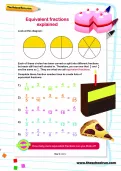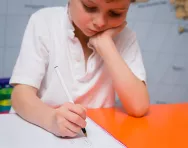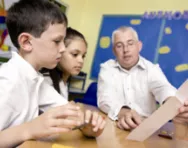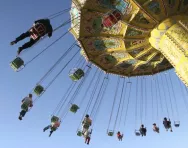Important update from TheSchoolRun
For the past 13 years, TheSchoolRun has been run by a small team of mums working from home, dedicated to providing quality educational resources to primary school parents. Unfortunately, rising supplier costs and falling revenue have made it impossible for us to continue operating, and we’ve had to make the difficult decision to close. The good news: We’ve arranged for another educational provider to take over many of our resources. These will be hosted on a new portal, where the content will be updated and expanded to support your child’s learning.
What this means for subscribers:
- Your subscription is still active, and for now, you can keep using the website as normal — just log in with your usual details to access all our articles and resources*.
- In a few months, all resources will move to the new portal. You’ll continue to have access there until your subscription ends. We’ll send you full details nearer the time.
- As a thank you for your support, we’ll also be sending you 16 primary school eBooks (worth £108.84) to download and keep.
A few changes to be aware of:
- The Learning Journey weekly email has ended, but your child’s plan will still be updated on your dashboard each Monday. Just log in to see the recommended worksheets.
- The 11+ weekly emails have now ended. We sent you all the remaining emails in the series at the end of March — please check your inbox (and spam folder) if you haven’t seen them. You can also follow the full programme here: 11+ Learning Journey.
If you have any questions, please contact us at [email protected]. Thank you for being part of our journey it’s been a privilege to support your family’s learning.
*If you need to reset your password, it will still work as usual. Please check your spam folder if the reset email doesn’t appear in your inbox.
What is a free school?

What are free schools?
Free schools are a new kind of school that groups of people, for example parents, teachers, charities or faith groups, can apply to set up in their area. Although they’re state schools funded directly by government, they’re not controlled by local authorities as maintained schools are.
When were free schools introduced?
The coalition government launched free schools when it came to power in 2010. There are now over 650 free schools.
Free schools are often all-through schools, combining primary and secondary education in one establishment.


Boost Your Child's Learning Today!
- Start your child on a tailored learning programme
- Get weekly English & maths resources sent direct to your inbox
- Keep your child's learning on track
How are free schools different from ordinary primary schools?
Free schools have much more freedom to make their own decisions on issues like:
- What to teach
- How long to make the school days, terms and school year
- Who to employ as teaching staff
- How much to pay teachers
Free schools don't teach the national curriculum. According to the Department for Education, one of the freedoms free schools enjoy is over what they teach, ‘providing it is a balanced and broadly based curriculum’, but to receive funding they must teach English, maths and science and ‘make provision for the teaching of religious education’. Free schools have regular Ofsted inspections.
What about admissions?
When it comes to admissions, free schools have to follow the School Admissions Code, just like other schools. This means they have to make sure the school is open to anyone.
If you’re involved with founding a free school, your children are guaranteed places at that school. Plus, priority is given to children with statements of a special educational need, looked-after children and children who’ve been adopted. Faith free schools can reserve half their places for children of that faith.
Free schools: pros and cons
The positives...
- Free schools mean that parents and teachers can get together to create a new school in their area if they feel it needs it. Supporters of free schools feel that this newly-created competition will drive up overall standards.
- Some free schools have a specialism, for example music, sport or technology, and can choose to put far more focus on that chosen subject. This might suit children who have particular talents or passions they want to follow.
- Free schools can be housed in all sorts of buildings that are no longer being used, for example schools, shops, offices, libraries or churches. This can be a great way to put forgotten spaces back to active, positive use.
The pitfalls...
- There’s no need for teaching staff employed by free schools to have qualified teacher status (QTS), which means technically children could end up being taught by untrained, unqualified people. Plus, free schools can pay staff whatever they like.
- Some people are concerned that faith schools will be allowed to teach with a fundamentalist slant. The Department of Education has put certain stipulations in place, for example banning creationism being taught as a valid scientific theory.
- There’s a worry that free schools could eventually cause existing state-maintained schools to close. This is because as the brightest pupils are drawn to newly-launched schools, those original places they might have gone to study will be drained of vital funding.
Interested in setting up a free school in your area? More information is available from the New Schools Network, a charity which provides advice and guidance on how to set up successful new state schools.








